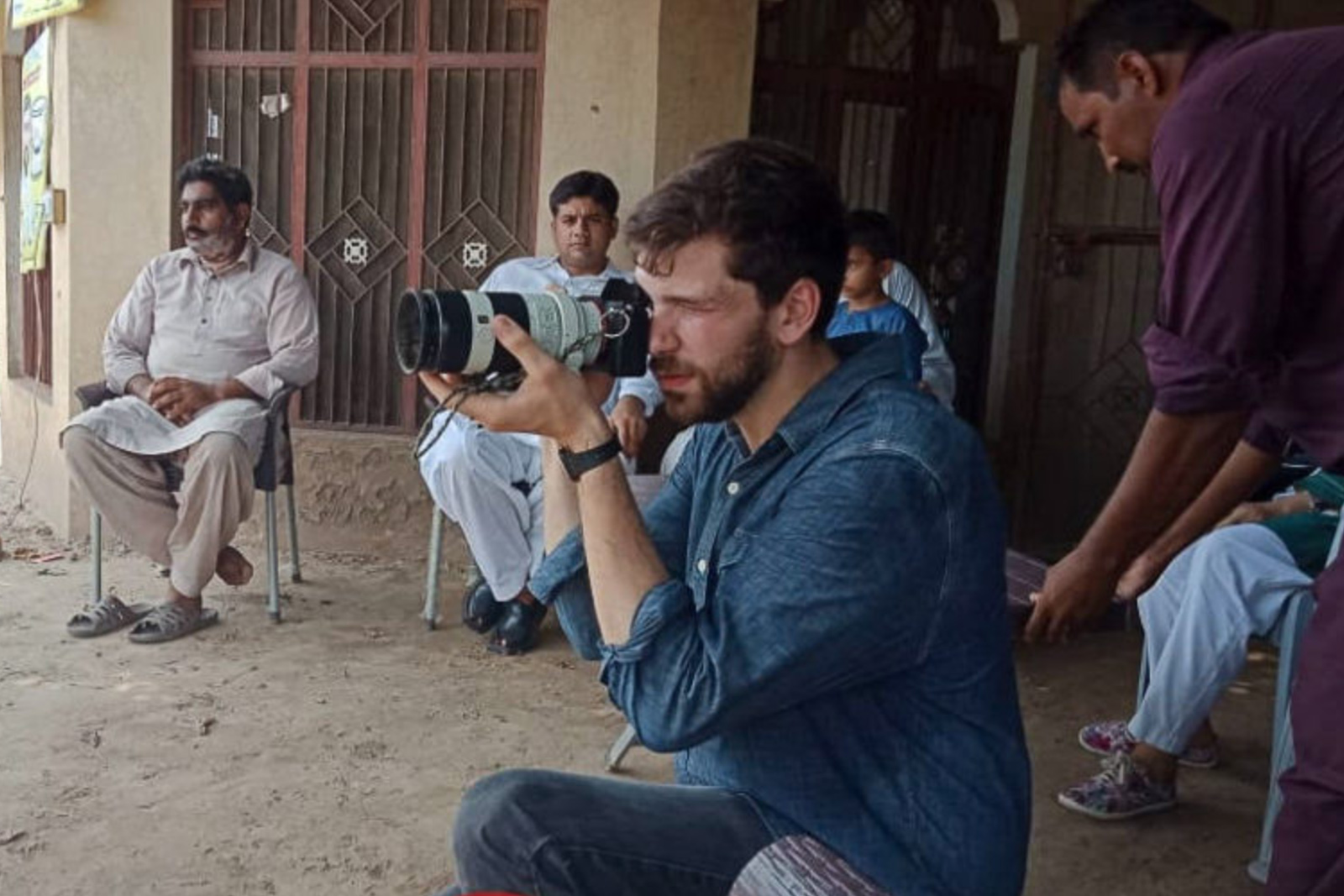Zach Krahmer: Pakistan
Zach Krahmer G’19 went to Pakistan as an Accountability Lab Fellow in 2018.
May 19, 2020
When Zach Krahmer visited South Sudan in 2016, he approached new relationships with caution, feeling guarded because of negative media reports and advice from acquaintances who had not visited. This changed when he began to spend time in a reggae artist enclave in Juba, which was adorned with painted murals on the walls. “When you entered, it felt like a sort of oasis,” Krahmer says. An instant ice breaker, the encounter was the first of many that would bring him closer to the people he met during his visit.
Through creative expression, Krahmer connected with people who might otherwise feel distant. This laid the foundation for a separate trip he made in the summer of 2018 to Pakistan and India, thanks to a fellowship with Accountability Lab, a cross-continental effort to empower and facilitate civil society initiatives. Krahmer worked mainly as a communications specialist during the fellowship, but he spent his spare time photographing and interviewing different artists in their creative spaces. He would spend between 30 minutes and six hours with local artists—mostly in Islamabad and Lahore—to learn about everything from their creative processes to their daily motivations.
Adnan Haider, a musician and sculptor, was one of the artists Krahmer interviewed. Haider grew up humming tunes and building mud houses. But coming from a conservative background, his family was averse to his engaging in the arts. Still, Haider persisted. He went on to complete a degree in art, and become a lead sculptor at Lok Virsa, an arts and cultural heritage center in Islamabad.
Collectively, Krahmer met with more than twenty artists like Haider. All of his meetings will be presented as a series of portraits with accompanying audio, each featuring the voice of the artist, offering universal advice that was helpful to them to other artists.

Krahmer plans to incorporate his project in a rural arts education program in the United States, hoping to create more critical thinking around media depictions. Amid the negative discourse surrounding Pakistan in the mainstream media, Krahmer wants to challenge misleading depictions of the country. “What better way to confront these negative images of ‘the other’ than by being invited to come and just listen?” says Krahmer.
Krahmer is well-equipped to successfully carry out such a mission. Already an accomplished photographer, he is currently pursuing advanced degrees at Syracuse University. He is set to graduate in May 2019 with an executive master in international relations, a master in visual communications, and an advanced certificate in conflict resolution. In the past, Krahmer has completed many projects overseas including work on generational farmers in Japan, journalists in Kyrgyzstan and demobilizing FARC combatants in Colombia. He has found bridging these perspectives with those in his own backyard most important, collaborating with organizations in his hometown of Portland, Oregon on stories about housing, addiction counseling, education and community.
In his latest endeavor with Accountability Lab, Krahmer led photography training sessions and storytelling workshops. A bulk of his work, however, was focused on documenting civil society initiatives carried out by the Lab’s “accountrepreneurs.”
Krahmer would schedule an initial meeting with the accountrepreneurs, then he would find creative ways of documenting their work. One was Hassan Mujtaba Zaidi, the founder of Discovering New Artists (DNA), a non-profit dedicated to providing arts education to underprivileged children.
Krahmer met Zaidi at the Mashal Model School school, where he, along with his wife Sidra, carried out programs for Art for Change, an art competition that previously focused on the theme of accountability. Zaidi expanded the competition to include more privileged schools and areas, and started charging an entry fee. The proceeds would then go to less privileged school children with the aim of buying them supplies and encouraging arts education in rural areas. Krahmer documented the competition and he will soon produce a video for Accountability Lab on Zaidi’s civil society initiative.
By sharing and promoting initiatives as such, Accountability Lab encourages grassroots-level civil society movements where citizens take responsibility and create change.
In Pakistan, the youth are at the forefront of change. In spite of strict censorship, particularly between 2011 and 2013, Pakistan’s civil society persisted through the arts. “Some musicians I talked to, they were not able to book any concerts during the bad years, but they always still played music together on their own. The thing from Pakistan that really caught my attention was how motivated and excited youth was about civil society,” Krahmer says, adding that there was a “sense of palpable optimism” among the youth.
“This trip was a whirlwind of hundreds of relationships, whether one-on-one making a video around a civil society initiative or with the artists in their studios,” Krahmer says. “I’m humbled and thankful for the opportunity to experience such a mosaic of relationships, and I hope to return soon.”